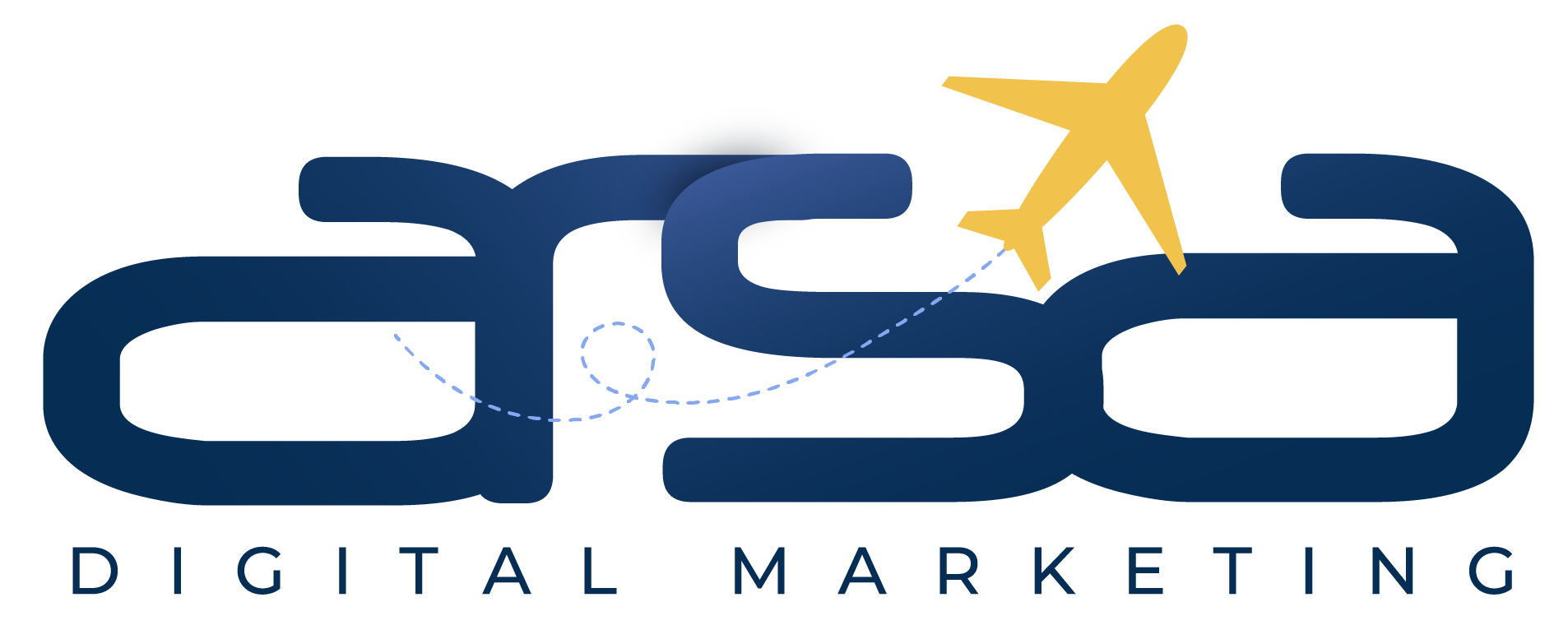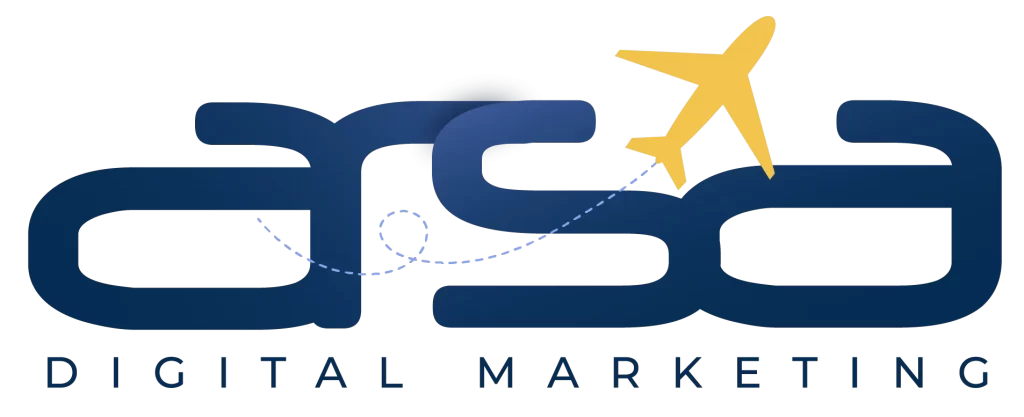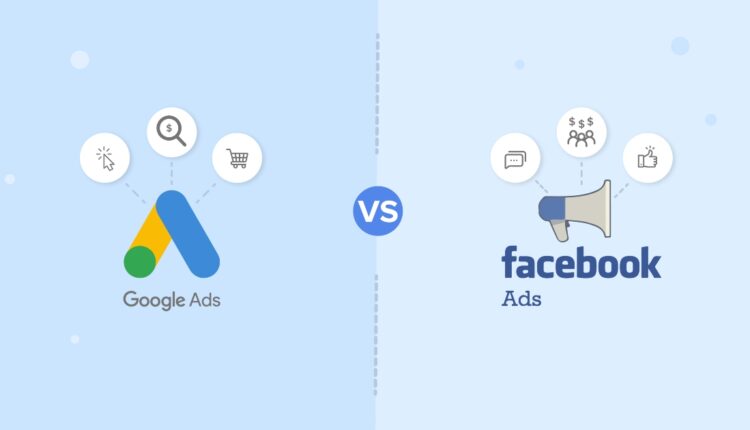
Facebook Ads vs Google Ads: A Comprehensive Comparison for American Businesses
Facebook Ads vs Google Ads: A Comprehensive Comparison for American Businesses.
Facebook is a mobile-first platform, with approximately 98.5% of users accessing it via mobile devices, making it ideal for mobile advertising. (Statista)
Google Ads are intent-driven, with 64.6% of people clicking on Google Ads when they intend to make a purchase, making it a powerful tool for conversions. (WebFX)
Index
- Facebook Ads vs Google Ads Overview
- Facebook Ads vs Google Ads for Diverse Goals
- Crafting the Ideal Strategy
- Conversion Rate: Facebook Ads vs Google Ads
- Optimizing Conversion Rates with Studio Arsa’s Expertise
- A practical Example of Conversion Rate Optimization
- Cost Comparison: Facebook Ads vs Google Ads
- Studio Arsa’s Approach to Maximizing ROI
- Real-World ROI Enhancement for Weight Loss Surgery in Mexico
- Facebook Ads vs Google Ads for Ecommerce and Real Estate
- Maximizing ROI for Ecommerce and Real Estate
- Why Facebook Ads Are Better for Some Businesses
- Which is Better, Facebook Ads or Google Ads?
Facebook Ads vs Google Ads Overview
Choosing the perfect advertising platform is like assembling your dream team for business success. At Studio Arsa, we’re your trusted coaches, and in this section, we’re bringing you the ultimate showdown: Facebook Ads vs. Google Ads.
The choice between Facebook Ads and Google Ads is often a critical decision for businesses of all sizes. Both platforms offer unique strengths and cater to distinct marketing objectives.
Google Ads, powered by the world’s largest search engine, is ideal for capturing users actively searching for products or services. It allows businesses to display ads when potential customers are in the decision-making phase.
On the other hand, Facebook Ads, leveraging the massive user base of the social media giant, excels in targeted audience engagement and brand building. Understanding the fundamental differences between these platforms is essential for crafting a successful digital marketing strategy.
Facebook Ads vs Google Ads for Diverse Goals
When considering Facebook Ads vs Google Ads, it’s crucial to align your advertising goals with the strengths of each platform. Google Ads is a go-to choice for businesses aiming to drive immediate conversions and capture high-intent leads. It thrives in scenarios where users actively seek solutions to their problems.
Conversely, Facebook Ads shine when building brand awareness, fostering community engagement, and targeting specific demographics. It’s a potent tool for businesses looking to reach potential customers who may not yet be actively searching for their products or services.

Crafting the Ideal Strategy
The choice between Facebook Ads and Google Ads should be guided by your specific business objectives. Many successful businesses opt for a balanced approach, leveraging both platforms to maximize their reach and impact.
For instance, leveraging Studio Arsa’s expertise, you can use Google Ads to capture users in the research phase and Facebook Ads to nurture them into loyal customers, forming a winning advertising strategy.
With Studio Arsa’s deep understanding of both platforms, we help businesses craft customized advertising strategies that align perfectly with their unique goals. This approach ensures that your digital advertising budget is maximized, allowing you to reach potential customers effectively and convert them into loyal advocates for your brand.
Conversion Rate: Facebook Ads vs Google Ads
The conversion rate is a crucial metric that directly impacts the success of your campaigns. We meticulously analyze the conversion rates of both Facebook Ads and Google Ads to help businesses in their decision-making process.
Facebook Ads often excel in capturing initial interest and building brand awareness. However, their conversion rates can vary significantly depending on the industry, targeting, and ad quality.
Our team conducts in-depth research and testing to fine-tune Facebook Ad campaigns, ensuring that they not only attract attention but also drive meaningful actions such as sign-ups, purchases, or inquiries.
Optimizing Conversion Rates with Studio Arsa’s Expertise
Studio Arsa’s expertise extends to Google Ads, where conversion rates are often influenced by factors like keyword selection, ad relevance, and landing page optimization.
Our data-driven approach involves continuous monitoring and optimization of Google Ads campaigns to boost conversion rates. By understanding the specific dynamics of your industry and audience behavior, we create compelling ad copies and landing pages that encourage users to take the desired actions.
Whether it’s maximizing lead generation or boosting e-commerce sales, our goal is to ensure that your digital advertising investments translate into measurable results, ultimately enhancing your business’s success.
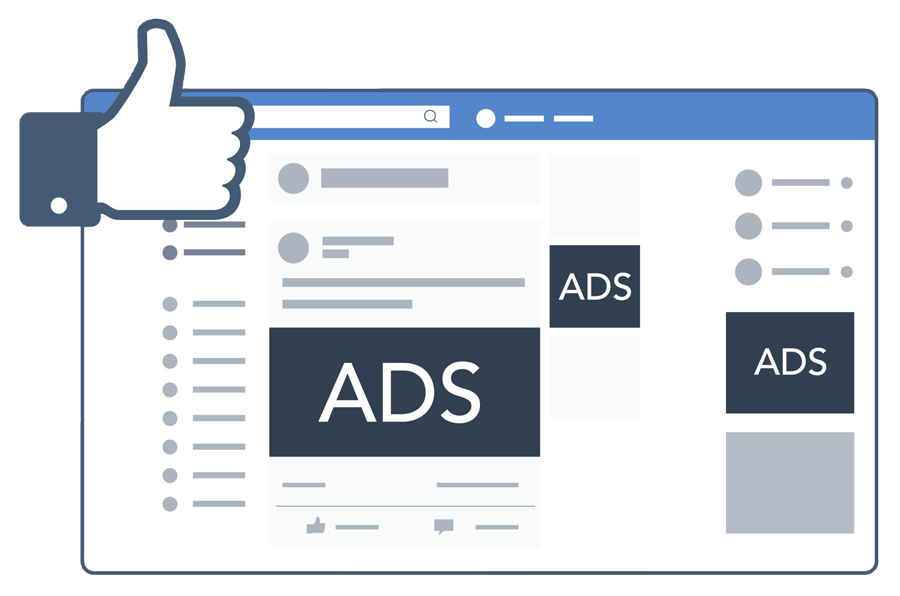
A Practical Example of Conversion Rate Optimization
To illustrate the impact of conversion rate optimization, consider a hypothetical scenario for a Studio Arsa client, a San Diego-based e-commerce store specializing in outdoor gear. Initially, their Facebook Ads were driving considerable traffic to their website, but the conversion rate, measured in terms of actual product purchases, was relatively low.
Upon partnering with Studio Arsa, we conducted a comprehensive analysis of their Facebook Ads campaigns. We identified that while the ad visuals and messaging were compelling, the landing pages lacked clarity and a seamless path to purchase. By optimizing the landing pages, streamlining the checkout process, and implementing pixel tracking for retargeting, we significantly improved the conversion rate.
Subsequently, we also integrated Google Ads into their advertising strategy. Leveraging specific keywords related to outdoor gear, we targeted users actively searching for similar products. The result? A surge in conversion rates on Google Ads, indicating that users who were further along in the buyer’s journey found the ads highly relevant and were more likely to make a purchase.
Cost Comparison: Facebook Ads vs Google Ads
Understanding the cost dynamics of Facebook Ads versus Google Ads is pivotal for businesses seeking to make the most of their advertising budget. At Studio Arsa, we delve deep into the cost comparison to help our clients make informed decisions.
Facebook Ads often stand out as a cost-effective option, particularly for businesses aiming to build brand awareness and engage with a broader audience. The platform offers precise targeting, ensuring that your ad spend reaches the most relevant users.
This can be particularly beneficial when you want to create a buzz around a business. For instance, we have the case of Funky Garcia’s in the Gaslamp Quarter, which attracts locals and visitors alike through Facebook.
Studio Arsa’s Approach to Maximizing ROI
Studio Arsa’s approach extends beyond merely comparing costs; we focus on maximizing return on investment (ROI). While Facebook Ads may have a lower initial cost, Google Ads can be a strategic investment for businesses looking to capture high-intent leads actively searching for specific products or services, such as restaurant reservations or takeout orders.
Our team meticulously analyzes both platforms, identifying which one aligns better with your unique goals and budget. By carefully tailoring your digital advertising strategy, we ensure that every dollar spent generates meaningful results.

Real-World ROI Enhancement for Weight Loss Surgery in Mexico
Let’s say a renowned weight loss surgeon in Mexico sought Studio Arsa’s expertise to improve its online presence and attract more international patients interested in weight loss surgery. Here’s how Studio Arsa’s strategic approach improved ROI for the doctor’s practice:
Initial Scenario:
- Doctor’s monthly ad spend on Google Ads was $2,500.
- Conversion rate (percentage of website visitors who filled out a consultation request form) from Google Ads was 1%.
- Average revenue generated per successful surgery was $8,000.
- Therefore, the return on ad spend (ROAS) was $2,500 ($2,500 x 1% x $8,000).
Studio Arsa’s Approach:
- Studio Arsa conducted a thorough analysis of the doctor’s Google Ads campaigns and website.
- Our team identified opportunities to improve ad copy, target relevant keywords, and enhance the user experience on the website, making it easier for potential patients to request consultations.
- We implemented a customized remarketing strategy to re-engage with users who had previously visited the website but did not fill out the consultation form.
Results after Optimization:
- Conversion rate from Google Ads increased to 3% due to improved ad relevance and a more user-friendly website.
- Average revenue per successful surgery remained at $8,000.
- The monthly ad spend remained at $2,500.
Enhanced ROI Calculation:
- With the enhanced conversion rate of 3%, the new ROAS became $6,000 ($2,500 x 3% x $8,000).
ROI Improvement:
- The ROI improvement due to Studio Arsa’s optimization was $3,500 (New ROAS of $6,000 – Initial ROAS of $2,500).
In this real-world example, Studio Arsa’s strategic approach effectively increased the doctor’s return on ad spend, resulting in a significant improvement in ROI while maintaining a consistent advertising budget. This optimization not only has attracted more international patients but also has contributed to the growth and success of the doctor’s weight loss surgery practice in Mexico.
Facebook Ads vs Google Ads for Ecommerce and Real Estate
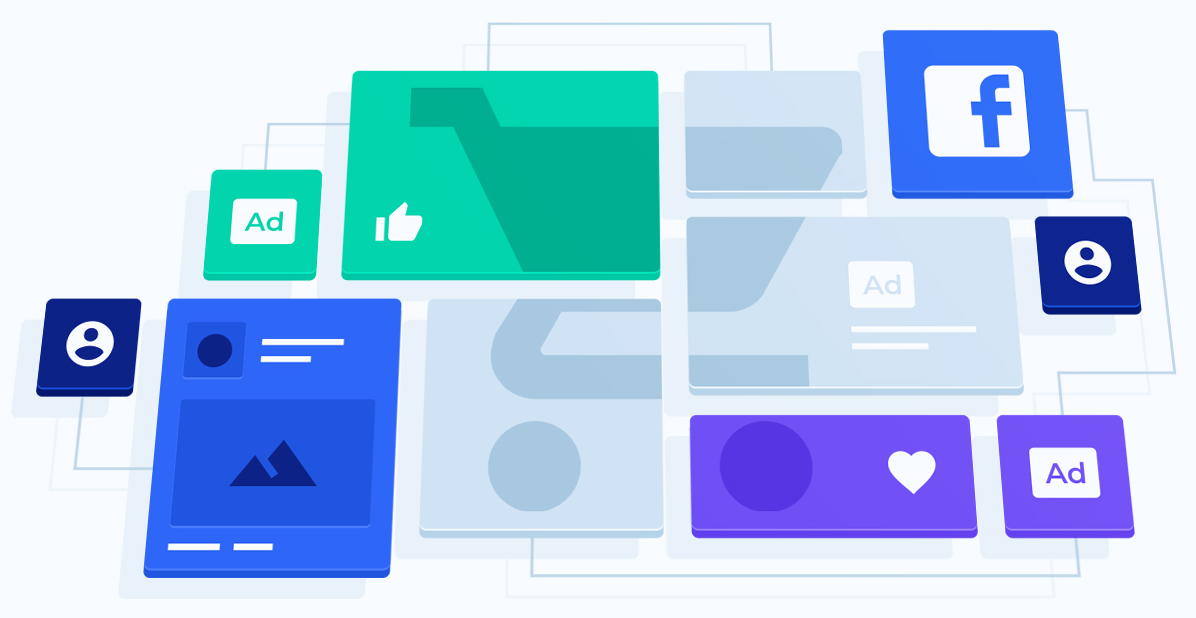
The choice between Facebook Ads and Google Ads takes on unique significance when considering the diverse industries of ecommerce and real estate. For ecommerce businesses, Google Ads often shine as they allow products to be displayed directly to users actively searching for them. This highly targeted approach can lead to increased conversions, particularly for online retailers.
On the other hand, Facebook Ads offer an effective means of building brand awareness and engaging with potential buyers. In the world of real estate, where the purchase decision is more complex, Facebook Ads are a powerful tool for showcasing properties and targeting specific demographics, while Google Ads can be beneficial for capturing leads actively searching for homes or apartments.
At Studio Arsa, we understand the dynamics of both industries and craft tailored strategies that align with the unique goals and customer behaviors of ecommerce and real estate clients.
Maximizing ROI for Ecommerce and Real Estate
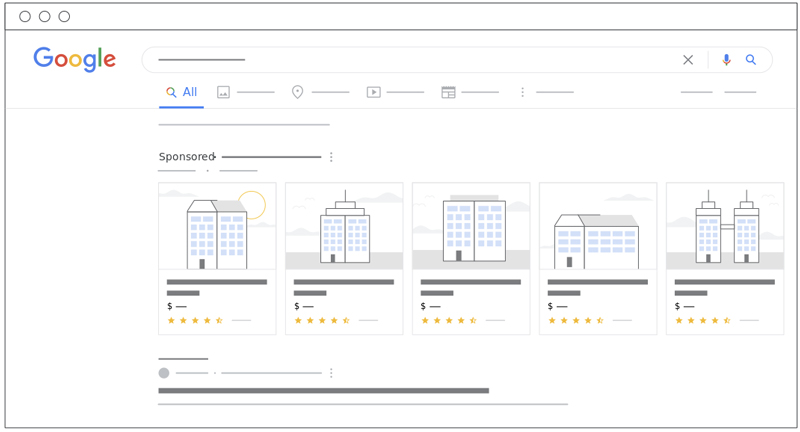
Studio Arsa’s approach extends beyond the initial choice between Facebook Ads and Google Ads; it’s about maximizing return on investment (ROI). For ecommerce clients, we meticulously optimize Google Ads campaigns, ensuring that each click translates into a valuable conversion.
Our team focuses on optimizing product listings, fine-tuning keywords, and enhancing the shopping experience, ultimately boosting sales. In the real estate sector, we utilize Facebook Ads to create visually compelling property listings and strategically target potential buyers.
By implementing effective remarketing and lead capture strategies, we convert prospects into clients, elevating the ROI for real estate professionals. Our data-driven approach and continuous monitoring ensure that every advertising dollar spent delivers tangible results, whether it’s boosting online sales for ecommerce or securing real estate transactions.
Why Facebook Ads Are Better for Some Businesses
Facebook Ads offer unique advantages that make them a better choice for certain businesses. Their strength lies in their ability to target specific demographics and interests, making them highly effective for businesses focused on building brand awareness, fostering community engagement, or appealing to a niche audience.
Facebook’s extensive user base provides an excellent platform for businesses in industries such as fashion, lifestyle, entertainment, weight loss surgery, and real estate, where visual content and storytelling play a crucial role.
Whether you’re showcasing the latest fashion trends, sharing success stories in the weight loss surgery field, or highlighting stunning properties in real estate, Facebook Ads offer the versatility to engage with a diverse audience and tailor your messaging to specific demographics and interests.
This flexibility makes Facebook Ads an invaluable tool for businesses seeking to connect with their audience on a more personal level and achieve their unique marketing goals.
Which is Better, Facebook Ads or Google Ads?
In conclusion, the determination of whether Facebook Ads or Google Ads is better depends on the unique goals and characteristics of each business. At Studio Arsa, our expertise lies in recognizing that there’s no one-size-fits-all answer. Instead, we emphasize a customized approach that leverages the strengths of each platform to maximize results.
For some businesses, the visual storytelling and precise targeting of Facebook Ads offer the ideal strategy, while others may thrive on Google Ads’ intent-driven advertising. The key is understanding the nuances of both platforms and aligning them with a business’s specific objectives.
Whether it’s increasing brand awareness, driving immediate conversions, or nurturing leads, Studio Arsa crafts tailored advertising solutions that ensure every advertising dollar is invested wisely, ultimately achieving the desired outcomes for our clients. Ready to explore the right advertising strategy for your business?
Glossary
Facebook Ads:
Advertising on the Facebook platform, leveraging its mobile-first approach and extensive user base for promotions.
Example: A clothing brand uses Facebook Ads to showcase its new summer collection to Facebook users who have shown an interest in fashion.
Google Ads:
Advertising on Google, targeting users actively searching for related products or services through intent-driven campaigns.
Example: A local pizzeria uses Google Ads to appear at the top of search results when users in their area search for “pizza delivery.”
Conversion Rate:
The percentage of website visitors who take a desired action, such as making a purchase or filling out a form.
Example: An e-commerce website has a Conversion Rate of 5%, meaning that 5 out of every 100 visitors make a purchase.
ROI (Return on Investment):
A metric that measures the efficiency of advertising investments by comparing revenue generated to campaign costs.
Example: A marketing campaign cost $1,000, and it generated $5,000 in revenue. The ROI for this campaign is 400% ($5,000 – $1,000 / $1,000).
Remarketing:
A strategy that targets users who have previously visited a website with relevant ads to re-engage them.
Example: An online clothing store uses remarketing to show ads featuring products that a visitor viewed but did not purchase during their previous visit.
Conversion Rate Optimization:
The process of improving landing pages and ads to increase the likelihood of desired conversions.
Example: An online education platform performs Conversion Rate Optimization by redesigning its course sign-up page, resulting in a 20% increase in sign-ups.
High-Intent Leads:
Prospects with a strong likelihood of conversion due to their high interest or need.
Example: A real estate agent considers a potential buyer who has submitted inquiries about specific properties as a high-intent lead.
Keyword Selection:
The process of choosing words or phrases that trigger ads in search engine campaigns.
Example: An online bookstore targets keywords like “best-selling novels” and “bookstore online” in their keyword selection for Google Ads.
Landing Page Optimization:
Enhancing the webpage to which ads direct users to boost conversion rates.
Example: An online software company performs landing page optimization by simplifying the sign-up form on its landing page, resulting in a higher sign-up rate.
Cost Comparison:
Evaluating advertising costs across different platforms to determine investment efficiency.
Example: A small business owner conducts a cost comparison between running Facebook Ads and Google Ads to determine which platform provides a better return on investment.
Visual Content:
Images and videos used in ads and online content to engage the audience visually.
Example: A travel agency uses captivating visual content on their website to showcase picturesque destinations and attract potential travelers.
Storytelling:
Using narratives to convey messages and connect with the audience, a technique often employed in marketing.
Example: A tech company incorporates storytelling into its advertising campaign by sharing the journey of how their product was developed, connecting with customers on a personal level.
Niche Audience:
A specific and highly segmented group of individuals with particular interests or characteristics.
Example: An artisanal cheese producer targets a niche audience of cheese connoisseurs who appreciate unique, handcrafted cheeses.
Intent-Driven Advertising:
Advertising displayed to users actively seeking information or solutions online.
Example: A car dealership uses intent-driven advertising to display ads when users search for terms like “buy a new car” or “car financing.”
Ecommerce:
The online buying and selling of products and services through virtual stores.
Example: An ecommerce website offers a wide range of electronics and accepts online payments for purchases.
Real Estate:
The market for buying, selling, and renting real properties.
Example: The real estate market in a particular city experiences a surge in demand for suburban homes due to changing work-from-home trends.
Pixel tracking for retargeting:
Pixel tracking for retargeting is a method to show targeted ads to users who previously visited a website but didn’t complete an action.
Example: After looking at shoes on a website, you see shoe ads on social media, encouraging you to return and buy. This is pixel tracking for retargeting.
